Mehbooba Mufti: Kashmir's first woman chief minister
- Published
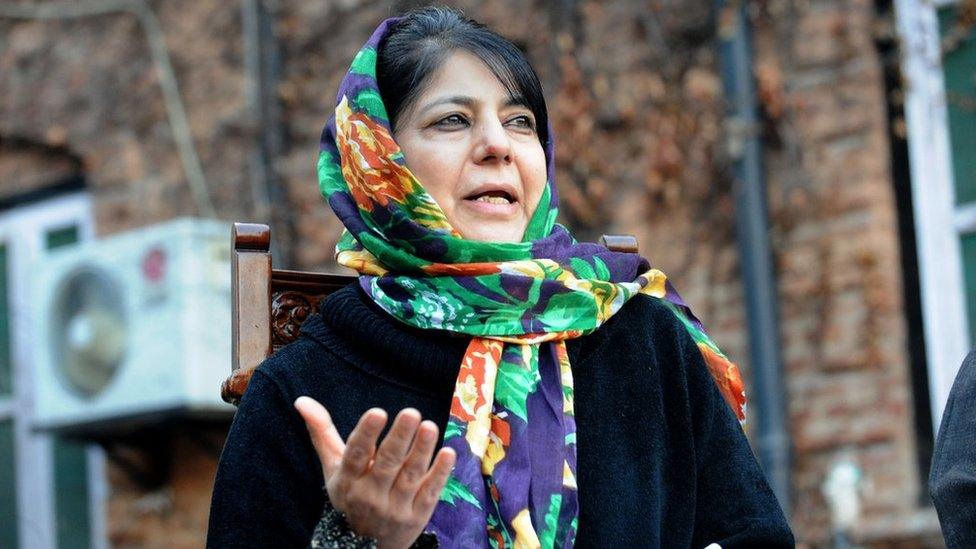
Ms Mufti has been a dominant force in Kashmir politics
Mehbooba Mufti has been sworn in as the first woman chief minister of Indian-administered Kashmir.
The 56-year-old leader is the daughter of the former chief minister, Mufti Mohammed Sayeed, who died in January.
Her father's death led to weeks of wrangling between Ms Mufti and India's ruling BJP, over the future of their coalition government.
Analysts say Ms Mufti may face challenges from within her own regional party, as well as from the coalition.
Ms Mufti took oath after a delay of nearly three months since her father's death.
It was a meeting with Prime Minister Narendra Modi on 23 March that finally allowed the re-stitching of the "unusual" alliance of two diametrically opposite political parties - Ms Mufti's Peoples Democratic Party (PDP) and India's ruling Hindu nationalist Bharatiya Janata Party (BJP).
Last year, Mr Sayeed himself had called the PDP-BJP alliance a meeting of the North and South Poles.
In a sharp contrast to the BJP, the PDP has been seen as a pro-Kashmir party and critics accuse it of peddling "soft separatism" revolving around reconciliation with Pakistan and separatist groups fighting against Indian rule in Kashmir.
Ms Mufti is seen by many in India as a "militant mainstream politician" - with a history of showing solidarity with families of militants.
But now, she is in the hot seat.
She refused to take office immediately after her father's death, insisting on some "confidence building measures", but finally managed to broker a "secret" deal with Mr Modi in a recent meeting.
She has termed the meeting "positive and satisfying" but not given any details yet.
Architect of victory
Although the PDP was launched in 1999 with her father as its president and Ms Mufti as its vice-president, much of the credit for building the party goes to her.
She organised the party ranks and led its campaigns in the state as well as in parliamentary elections.
In his last press conference in early December, Mufti Sayeed had dropped broad hints about transferring the mantle to his daughter.
"She is efficient. She built the party and she is better connected with the masses. I think she is talented enough to run the state," he said.
Ms Mufti took the plunge into politics in 1996 as a Congress party candidate when the Indian government decided to hold elections to the assembly in Jammu and Kashmir.
The unassuming, soft-spoken Ms Mufti was an unknown face until she filed her nomination papers for the polls.
'Game changer'
She braved threats and moved ahead to go through the litmus test of politics in a volatile Kashmir Valley that had been reeling under a separatist insurgency since the late 1980s.
Her election in a conservative society like Kashmir was significant.
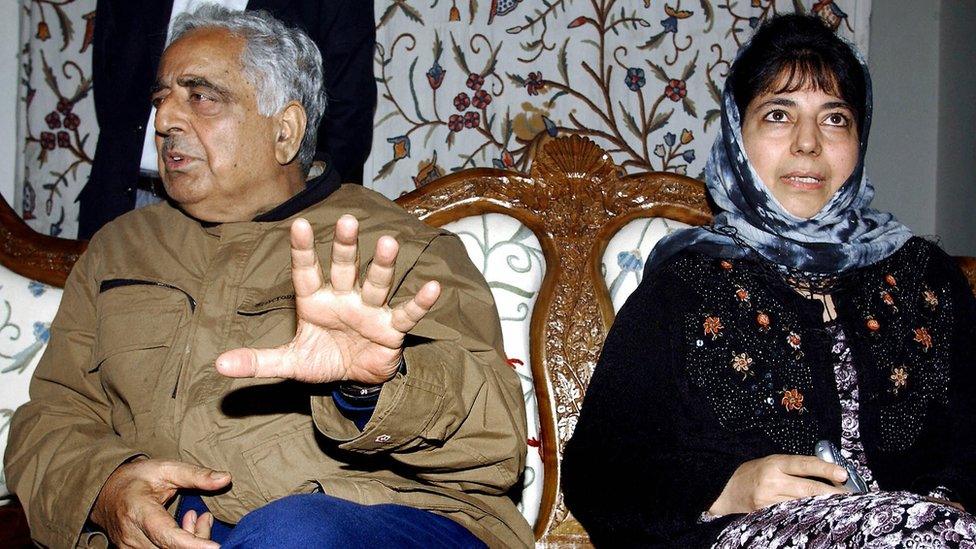
Mehbooba Mufti is the daughter of India's first Muslim home minister Mufti Mohammad Sayeed
A law graduate from Kashmir University, Ms Mufti in 2014 December helped her father realise the dream of becoming the state's chief minister - a post he had waited for nearly 27 years.
Mr Sayeed was in the Congress party in 1996 and when many were reluctant to fight elections under the Indian constitution and more so under the banner of a national party in Kashmir, he convinced his wife Gulshan Begum to stand for election in Pahalgam and his daughter Mehbooba to run in the Bijbehara constituency.
Ms Mufti won the election but her mother lost. Since then, there has been no looking back.
Ms Mufti acknowledges that she came into politics by accident. "But when I entered politics, I found that this was the space that could be used for making lives of people better," she says.
At the peak of militancy when Indian armed forces were often accused of human rights abuses, she struck a chord by visiting the families of militants who had been killed.
She would wail and weep with the grieving women in burnt villages and sombre homes, making steady inroads into the "hearts" of the people.
'Unmatched dedication'
In 1999, Ms Mufti and her father quit the Congress realising that the party was no longer acceptable to the people of Kashmir who were fighting for separation from India. They then launched the PDP.
In 2002, the PDP formed a government in the state with the Congress party as its coalition partner and Mr Sayeed was appointed the chief minister.
Three years later, in 2005, he stepped down to allow the Congress to take the chief minister's post.
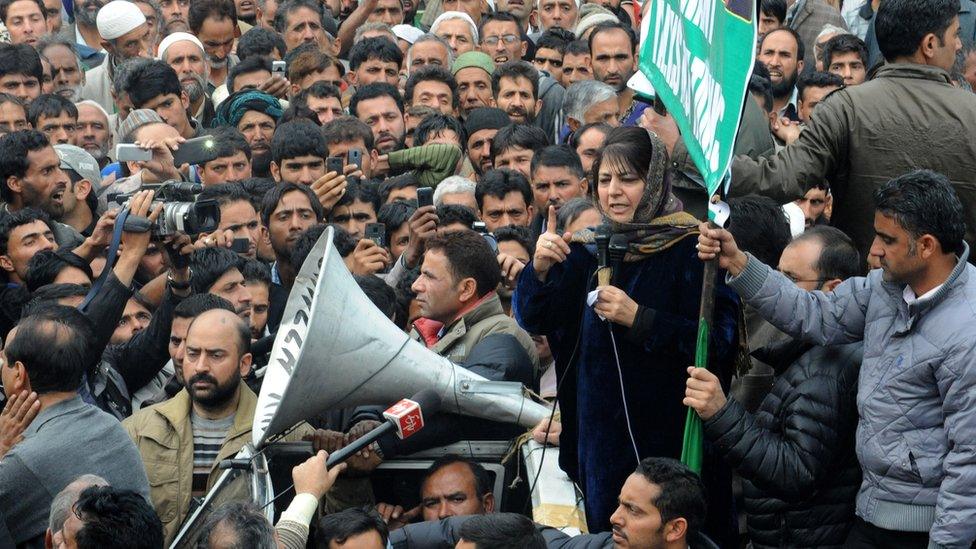
Mehbooba Mufti led her party's 2014 election campaign from the front
In January 2009, the PDP sat in opposition when the Congress decided to form a coalition government with the National Conference party, led by Omar Abdullah.
In the 2014 elections, Ms Mufti led from the front, going door-to-door to meet people and seek support for the PDP candidates.
"Her dedication and hard work was unmatched," said a party worker, adding that she would leave to campaign at 8am and return home at 9 at night.
All the hard work paid off - after winning the largest number of seats in the election, the party returned to power in alliance with Mr Modi's BJP.
Born on 22 May 1959 in South Kashmir's Anantnag district, Ms Mufti is a divorcee.
She has two daughters who are studying in the US.
During the 2014 elections, she said her only regret was that she was not able to give more time to her daughters.
"But they also know that it was not possible," she says, adding: "I am a full-time political worker."
- Published24 November 2014
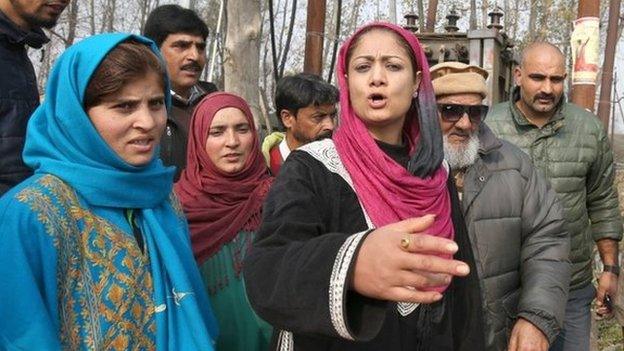
- Published23 December 2014
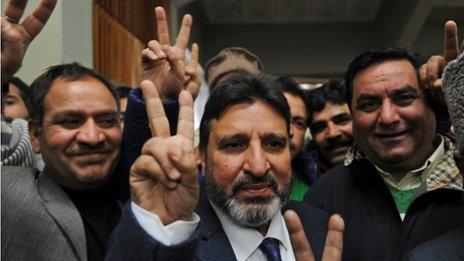
- Published9 December 2014
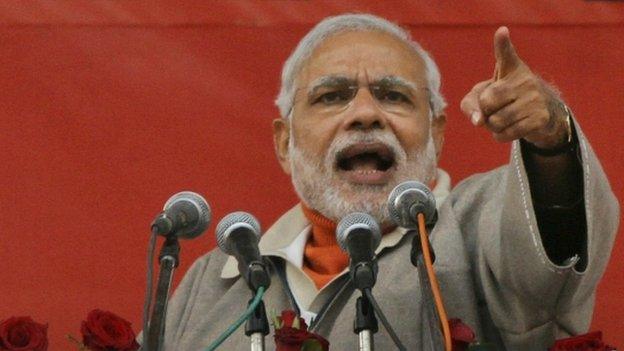
- Published25 November 2014
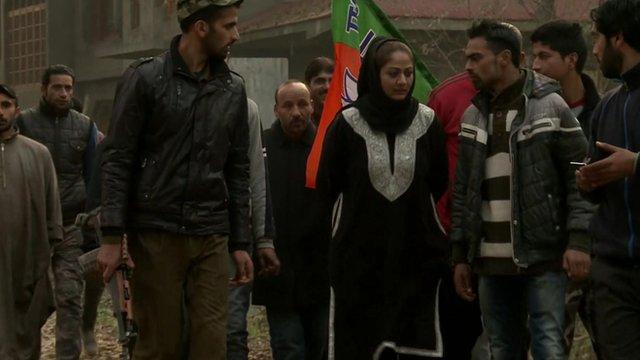
- Published10 March
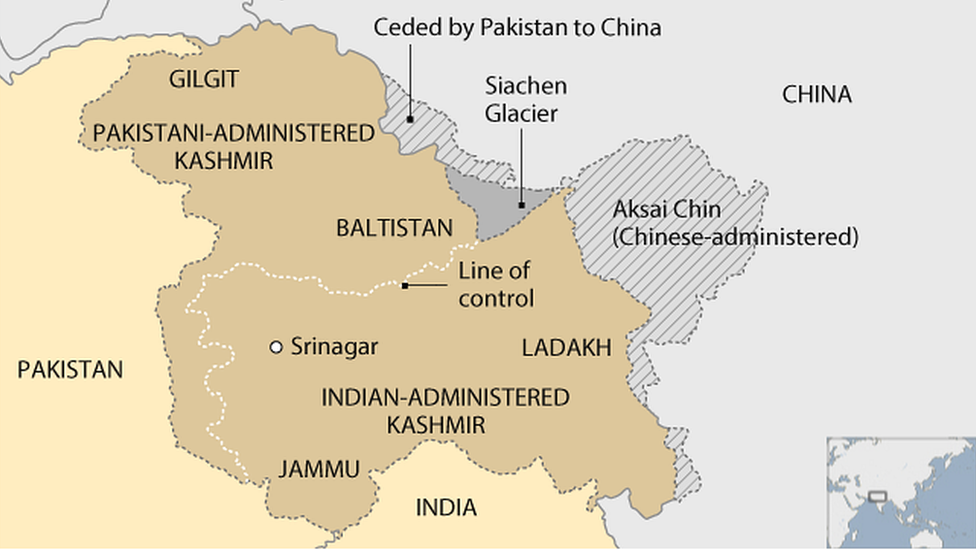
- Published6 January 2014